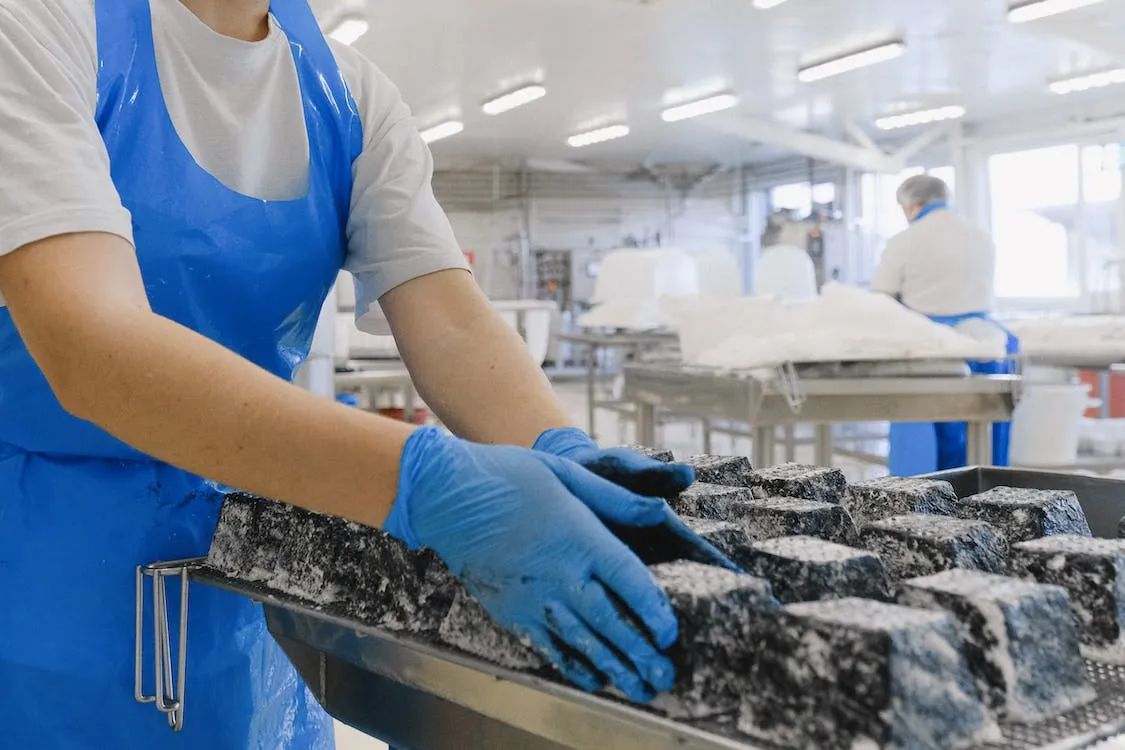
9 Impactful Investments to Improve Food Processing and Manufacturing Operations
Published 12/20/2023 Source Richard Wright @ https://elderscorps.org/
Safety in food processing and manufacturing operations are key to the success of any business. These types of operations – including warehousing – provide the logistics behind every product and service a food-focused company offers, as well as playing a critical role in maximizing efficiency and productivity. All too often, warehouse operations go overlooked when it comes to investment. Yet there are countless ways that investing in warehouse operations can pay off dividends for your company. Today, Midland Claims Service explores seven impactful investments you can make to improve your operations and optimize efficiency.
Focus on Cybersecurity
These days, cybersecurity is more important than ever – and that’s also true for warehouse management! If you want to protect your company and your customers, you might consider going back to school and expanding your knowledge with a number of cyber security courses that can help arm you against modern digital threats. Best of all, the flexibility of online learning platforms means you can study at your own pace, gaining skills and knowledge that could make all the difference in the world for your business.
Automation Upgrades
Automation is, arguably, the biggest game-changer for the industry in recent years. The benefits include faster operations, reduced load on workers, and reduced operational costs. There are several automation technologies that are worth exploring: automated picking tools, automatic guided vehicles (AGVs), automatic inventory control platforms, WMS, collaborative robots, and automated storage and retrieval systems.
Safety Upgrades
Safety has always been a priority for food processing managers. Not only does the OSHA require it, but providing a safe, incident-free environment for workers boosts morale and can significantly improve productivity. Making extra safety upgrades can be a worthwhile investment. Some new-age safety upgrades are wearables, drones, IoT gadgets, anti-hazard containers, anti-hazard flooring, updated ventilation systems, lighting, and updated racking systems.
Utilizing the latest food safety technology is also important. Detecting foodborne pathogens is paramount when it comes to producing and warehousing food products.
Use Healthy Cleaning Supplies
Since OSHA requires companies to use the least hazardous cleaning products ß(*this link downloads a pdf file) available, you should take another look at how you’re maintaining the cleanliness of your business, as well. You might want to look into natural cleaners that you can make yourself. In addition to getting the job done more efficiently and cheaply, this is also a healthier way to maintain a safe work environment.
Cloud-based Warehouse Management System (WMS)
The WMS market was valued at USD 3,413.9 million in 2022 and is expected to grow at a 19 % CAGR by 2026 according to Grand View Research. Essentially, many more companies are getting WMSs or making upgrades to existing systems – and for good reason: A WMS can drastically cut distribution costs, reduce lead time, and increase order fulfillment speeds. A cloud-based system, as opposed to an on-site system, is convenient to use and can be managed by an external provider. Guru99 lists some worthwhile solutions.
Real-time Tracking and Data Analytics Solutions
Data is gold – it gives you a realistic idea of how your warehouse is running, helps you identify problems, and gives you insights on making improvements. Investing in data analytics solutions – including tools and talent – is how you can optimally gather, interpret, and leverage data. Many WMS systems have data analytics features bundled in. You can also use third-party analysis and visualization tools.
Speeding Up Workers
Periodic employee training and upskilling can make your employees more motivated and productive. You could invest in training programs, certifications, cross-training exercises, and similar. Besides training, implementing new management techniques can also work. For instance, to encourage faster output, you can set up relevant performance goals. If an employee doesn’t think these goals are achievable, you can share examples of people successfully meeting or exceeding said standards. It’s important you be encouraging and positive.
Warehouse Equipment Upgrades
Aging equipment is a major problem for many warehouses. Not only is this equipment a safety hazard, but it tends to reduce worker efficiency and increase the error threshold. Upgrading warehouse equipment periodically can be a worthwhile investment, not to mention newer equipment often includes better features.
For instance, electric forklifts with lithium batteries are incredibly low maintenance. Fast-charging batteries allow for maximum uptime and quick deployment of forklifts. Some other equipment you could look into upgrading includes docking equipment, conveyors, storage, and packing gear.
Third-party Logistics (3PLs)
3PLs deserve a special mention. These providers can manage several key logistical tasks like shipping and warehousing for you, leaving you free to focus on your core competencies. For instance, a 3PL may have an established, efficient transportation network you could take advantage of (if you don’t have one yourself). A good 3PL provider can significantly reduce your operational costs and boost efficiency. Of course, 3PLs aren’t perfect, and bad ones can cause a few problems. It’s important you pick a good partner.
Conclusion
Investing in food processing and manufacturing operations and food safety can have a major positive impact on any business. Careful consideration and evaluation of all opportunities to improve efficiency, productivity, and cost savings can result in a better overall outcome for the company. There are numerous ways to invest in warehouse operations, and it pays off to select the ones that offer the most value. With the right investments, a company can create an optimized warehouse operation that will drive success well into the future.
Midland Claims Service specializes in the Investigation.Communication.Resolution.® of claims in the state of Montana. Call (406) 656-9960 to discuss any needs that you may have for assistance with claims or to arrange for our nationwide claims process consulting services.
Image via Pexels
